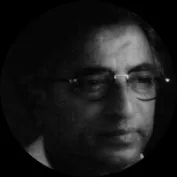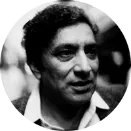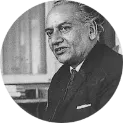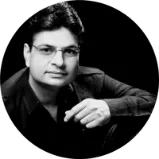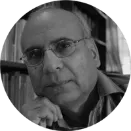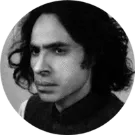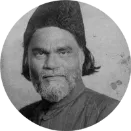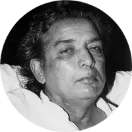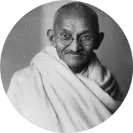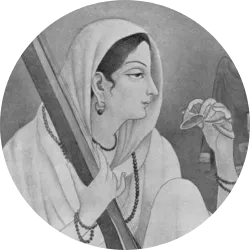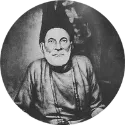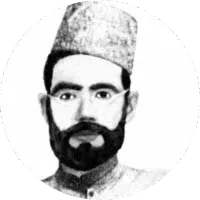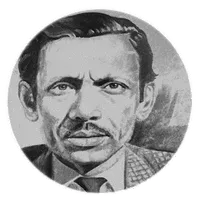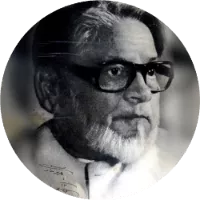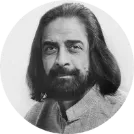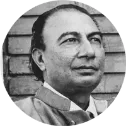Full Ghazal of Ham Ko Malum Hai Jannat Ki Hakiqat Lekin by Mirza Ghalib | Translation and deeper exploration of the meaning behind each sher:
husn-e-mah garche baa hangam-e-kamaal achchaa hai:
While the beauty of the full moon is indeed captivating,
us se meraa maah-e-khurshiid-jamaal achchaa hai:
My moon, with its sun-like radiance, surpasses it.
In this sher, Ghalib employs the characteristic exaggeration of ghazals to praise the Beloved’s radiant beauty. He compares the transient allure of the full moon to the constant and brilliant beauty of the Beloved, emphasizing the latter’s superior charm.
bosaa dete nahi.n aur dil pe hai har lahzaa nigaah:
She doesn’t grant kisses, yet her gaze dwells upon my heart constantly.
jii mei.n kahte hai.n ki muft haa.nth aaye to maal achhaa hai:
In my heart, I believe that a free hand is better than wealth.
In this playful sher, the poet humorously expresses the unlikelihood of receiving kisses from the Beloved. He suggests that her affectionate gaze is worth more than material wealth, even though she doesn’t bestow physical kisses. The second line playfully characterizes the Beloved as someone who values a free hand over expensive gifts.
aur baazaar se le aaye agar TuuT gayaa:
Even if something obtained from the market breaks,
saagar-e-jam se meraa jaam-e-sifaal achchaa hai:
My clay cup from the ocean of Jam is better.
In this sher, the poet contrasts a fragile market-bought item with his own simple clay cup, emphasizing the sentimental value and uniqueness of his possession. The reference to “Jam” alludes to a legendary cup of nectar, symbolizing something precious and rare.
be-talab de.n to mazaa usme sivaa miltaa hai:
If given without asking, there’s a different joy in it,
vo gadaa jis mei.n na ho khuu-e-sawaal achchaa hai:
That beggar who doesn’t have the habit of asking is preferable.
This sher explores the pleasure of giving without being prompted. It suggests that spontaneous generosity is more enjoyable. The second line humorously portrays the idea of a beggar who doesn’t constantly beg for alms, implying that such a person is more appreciated by potential donors.
un ke dekhe se jo aa jaatii hai mu.nh pe raunak:
With just one look from her, radiance appears on my face,
vo samajhte hai.n ki biimaar kaa haal achchaa hai:
Others think that the condition of the sick is better.
This sher humorously portrays the transformative effect of the Beloved’s glance on the poet’s face. While he sees it as a positive change, others misinterpret it, thinking he looks healthier when in reality he is lovesick.
dekhiye paate hai.n ushhaak buto.n se kyaa faiz:
Let’s see what benefits Lovers gain from idols,
ek baraahman ne kahaa hai ki ye saal achchaa hai:
A Brahmin once said that this year is good.
This sher playfully discusses the idea of Lovers seeking favors from idols, hinting at the futility of such actions. The mention of a Brahmin endorsing a favorable year adds a humorous touch to the commentary on superstitions and rituals.
ham-sukhan teshe ne farhaad ko shiriin se kiyaa:
A wise friend made Farhad enamored with Shirin,
jis tarah kaa ki mei.n ho kamaal achchaa hai:
In the same way, the kind of love I possess is excellent.
This sher draws a parallel between the poet’s love and the famous love story of Farhad and Shirin. It highlights the intensity and excellence of the poet’s affection, comparing it to the legendary romance.
katraa dariyaa mei.n jo mil jaaye to dariyaa ho jaaye:
If a drop merges in the river, it becomes the river,
kaam achchaa hai vo jis kaa ma’aal achchaa hai:
The work is excellent if its result is good.
This sher metaphorically emphasizes the transformative power of small contributions or efforts, likening them to a drop merging with a river and becoming part of something larger. It underscores the value of actions that yield positive outcomes.
khizr-sultaan ko rakhe khaalik-e-akbar sar-sabz:
May the Creator keep Khizr Sultan flourishing in Akbar’s court,
shaah ke baagh mei.n ye taazaa nihaal achchaa hai:
In the Shah’s garden, this fresh plant is good.
In this sher, the poet conveys his good wishes for Khizr Sultan, a prince, to thrive in Akbar’s court. It symbolizes the importance of nurturing talent and potential. The reference to the Shah’s garden adds a regal touch.
ham ko maaluum hai jannat kii hakiiqat lekin:
I know the reality of heaven, but
dil ke khush rakhne ko ‘Ghalib’ ye khayaal achchaa hai:
To keep the heart content, ‘Ghalib,’ this thought is good.
In the closing maqtaa, the poet Ghalib reflects on the knowledge of the reality of heaven. He suggests that it is better to focus on keeping one’s heart content and at peace, valuing inner peace and contentment over material desires. The maqtaa adds depth and philosophical insight to the ghazal.
